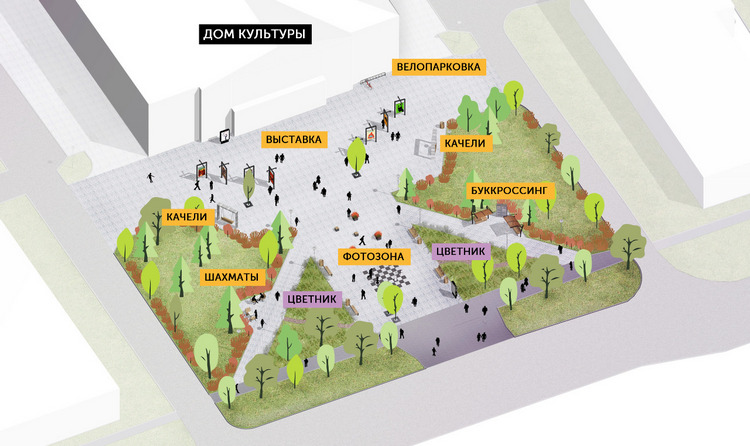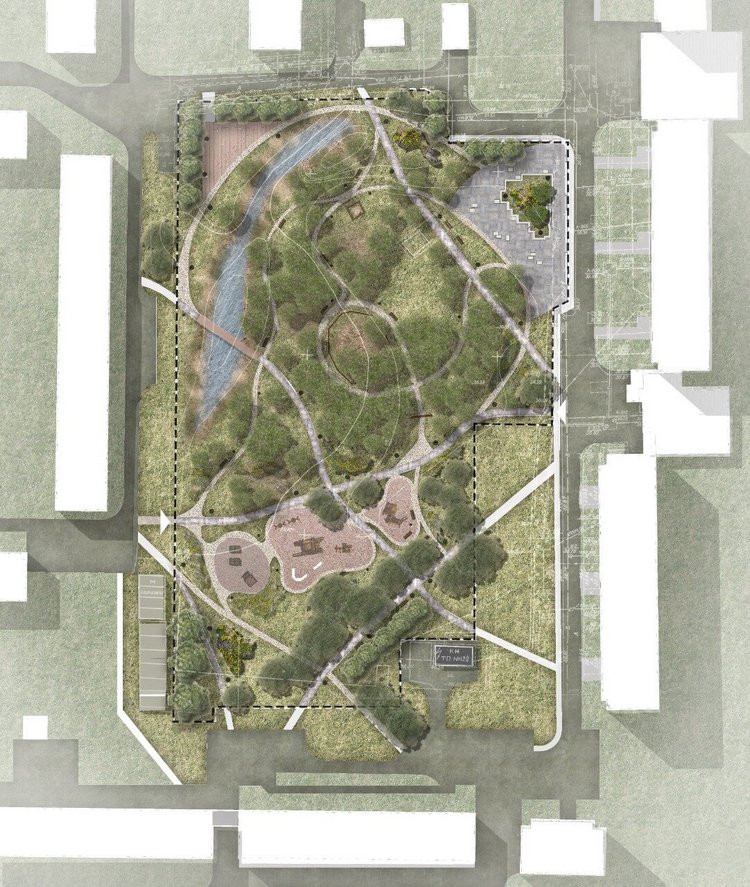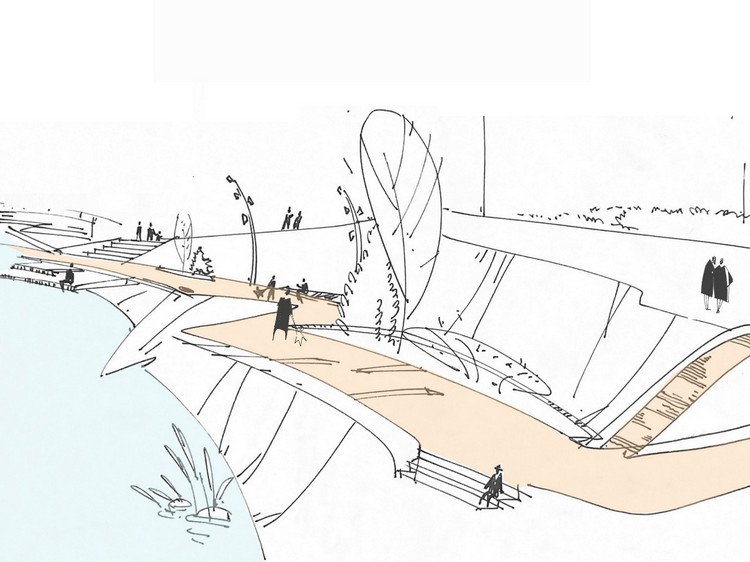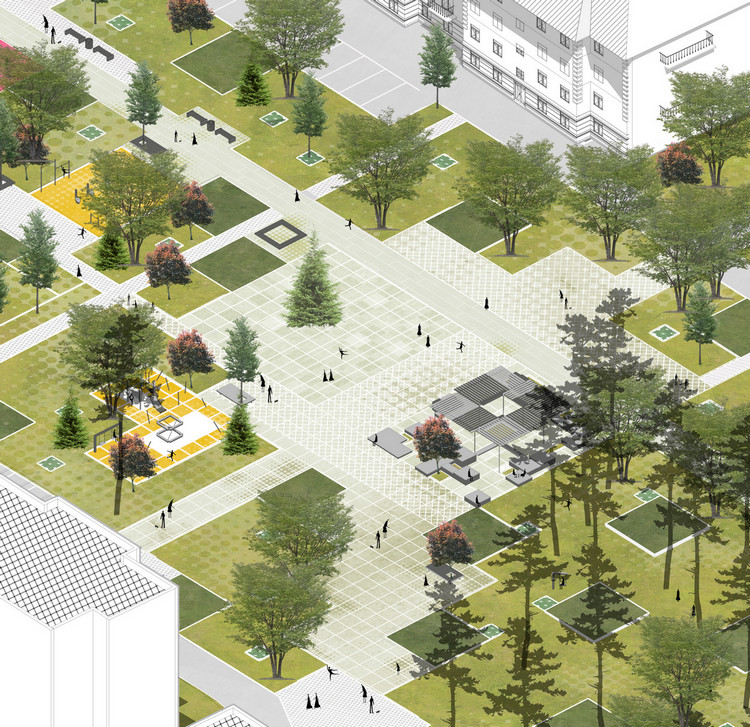SPbGASU Architecture Students Took Part in Hack City Spaces Hackathon
On March 21, the semi-final of Hack City Spaces, the first architectural hackathon of the Leningrad Region, was held at Saint Petersburg State University of Aerospace Instrumentation.
Hackathon (portmanteau of the words "hack" and "marathon") is a design sprint-like event, in which specialists collaborate intensively on a project. The event was organized by the Urban Competence Centre of the Leningrad Region, the Union of Architects of St. Petersburg and the all-Russian organization "City Renovations".
Nikolskoye team proposal
The hackathon format requires maximum energy concentration – the participants had only one week for developing the concept of urban environment transformations. Fitting into the allocated budget was an essential condition.
Murino team project
104 university students and young specialists aged 18 to 27 took part in the hackathon. The multidisciplinary teams were composed not just of SPbGASU students, but also future economists, sociologists, urbanists studying in other universities. Besides, there were teams consisting only of students of the SPbGASU Faculty of Architecture.
The competition task was to develop urban improvement proposals for municipalities of the Leningrad region that can be implemented in the framework of “Creating a Comfortable Urban Environment” – the national programme where objects for transformation are proposed by residents. The participants’ works will be published on 47.gorodsreda.ru website, and citizens will be able to choose between the options developed by the architectural hackathon teams and proposals of other architects invited by local administrations.
Murino team design proposal
While working on their projects, the hackathon participants interacted both online and in person, visited the locations and managed to prepare their proposals on time, having successfully defended them in front of the expert jury.
On March 24, the winners were announced at the Urban Competence Centre of the Leningrad Region. The winning projects include those developed by teams of SPbGASU students and graduates and may be implemented in the towns of Murino, Sertolovo, Tikhvin, Kingisepp, Kudrovo, Pikalevo and Priozersk.
Fig.1. Slantsy team competition project
Fig. 2. Slantsy team final proposal
The team that worked on the project for Sertolovo was supervised by architect Andrey Morozov. He highly appreciated the creativity and efficient work of the team members – Boris Provkin, Ilya Arzhnikov, Evgenia Koshkina, Victoria Bosak, Karina Nasybulina, students of the SPbGASU Faculty of Architecture.
“They are competent guys, and made a really good site analysis when we went to see the area of the future park in Sertolovo,” noted Andrey Morozov.
Anita Popova, who graduated from SPbGASU in 2019, was supervising the teams that developed award-winning proposals for Pikalevo and Priozersk. She praised the efficiency and team spirit of the Architecture students of SPbGASU. “These are well-coordinated teams, they did everything together and did not need help,” she said.
According to Svetlana Levoshko, PhD in Architecture, Associate Professor of the Department of Urban Planning of SPbGASU, who was the supervisor of the teams that worked on proposals for Sosnovy Bor and Slantsy, members of her teams demonstrated a high level of competence, proactiveness, team spirit and the ability to work fast and efficiently.
{gallery name="ХАКАТОН04"}
“During a day of face-to-face work, they managed to suggest competitive ideas appreciated by the jury. Both teams paid due attention to the comments made by the experts. The students also interacted with the administrations of Sosnovy Bor and Slantsy responding quickly to their suggestions,” told Svetlana Levoshko.
Grigory Chuvashov, a student of the Faculty of Architecture, shared his impressions of the event: “I was surprised by the intensity of the hackathon. Despite some organizational imperfections, it was successfully accomplished. I believe it was an extremely useful experience, first of all, for municipal government officials. Students and recent university graduates most often already know how urban improvements can look. But people who are responsible for the allocation of financial resources, being not directly linked with architecture and design, are often unaware of some modern trends. We were given estimated costs of works, the sponsors’ product catalogues and the budget limits, and in that way, we were encouraged to take into account the current realities without suggesting unrealizable ideas.”
Text: Elena Shulgina
Photos provided by Svetlana Levoshko and organizers of the event
✔ Find out more about the Faculty of Architecture









